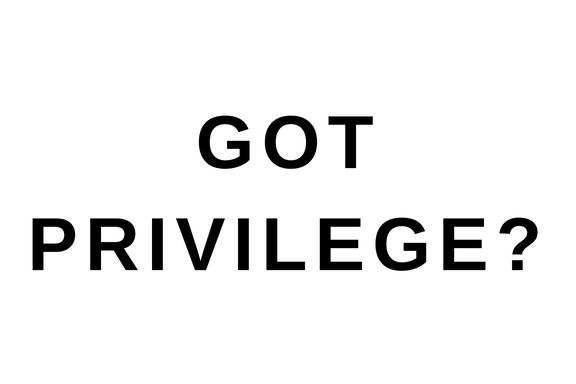I am troubled by today’s pervasive entitlement mentality. Students who have college loans feel they are entitled to debt-free carte-blanche forgiveness without paying them off. Sexual harassers who hold powerful positions feel they are entitled to take what they want—simply because they are who they are. Children who have famous parents often exploit their privileged lives because they feel entitled to commit egregious and sometimes illegal acts as though it is their birthright.
Feeling entitled can lead to dangerous consequences. Let’s consider a few examples.
Often people who come from humble beginnings attend expensive private colleges and rack up hundreds of thousands of dollars of college debt. Should they be allowed to attend those universities? Of course. But should they also consider the ramifications of paying off that debt and factor in the cost-benefit analysis of private versus public universities with much lower costs? If you buy an expensive house, you must realize that it will result in a huge mortgage. Someone else isn’t going to pay it off unless perhaps a wealthy uncle dies and leaves you a pile of cash. Sure, one can argue that colleges and houses cost too much. Both statements may be true. Still, if you take out a loan, you should expect to pay it back.
Now let’s take the example of powerful men and women who feel entitled to exploit their positions simply because of who they are. I’ve read more articles than I care to admit about Andrew Cuomo in the last few weeks. Clearly, he felt entitled to harass women and bully employees. He assumed he would continue to get away with it because he had for years. He also had enablers who helped discredit his accusers and made their lives a living hell. (I found it particularly rich when Trump declared Cuomo should resign given his own sordid past.)
During the Brett Kavanaugh confirmation hearings, I had the sense that Kavanaugh felt he was entitled to be a Supreme Court justice. He didn’t feel that incidents which showed questionable judgment and poor character in his past should be examined. Yet one could certainly argue that his temperament and outrage during the hearings didn’t exemplify the steady, measured, thoughtful and unwavering qualities worthy of a Supreme Court justice.
Lately, my friends have been telling me how frustrating it is to work with employees with newly minted college degrees. They claim many of them have a sense of entitlement that is difficult for them to fathom. Demanding better wages, work-life balance, benefits, etc. is not necessarily a bad thing. But assuming they should get promoted within a matter of months; that they should be given highly strategic work before they have even learned the ropes, is something else.
Many psychologists, therapists, and student counselors believe that part of the reason young people feel so entitled is because their parents never said no to their demands. As a result, they feel entitled to have whatever they want without earning it. I don’t think it’s quite that simple, but there is a grain of truth here.
They also say that people who have powerful positions for long periods of time often feel a sense of entitlement to do whatever they please—treat people shabbily or take advantage of them because of some misguided sense of almighty power.
So, what is to be done about this entitlement culture? Experts say the solution involves two things: gratitude and accountability.
We need to help children and new employees, be grateful for what they have. Instead of always wanting more, gently remind them of their good fortune and encourage them to share that bounty when they can.
The second concept is holding people accountable for their actions. If employees don’t meet their goals or perform tasks at a competent level, they shouldn’t expect bonuses or promotions automatically until they have mastered the competencies required for current positions. We must also hold our leaders accountable for their actions. As many have said in recent days, democracy and freedom only work when we do.
As with all things, there are degrees here. Gratitude and accountability are not learned overnight. One minor mistake should not a cancel culture make.
Fighting to make America as great as it can be—fighting for racial and gender equality, better bridges, roads, healthcare, clean water, the environment is a good thing. We are entitled to expect the best from our leaders and ourselves. But we must vote, and we must understand that there is a price to pay for these services that “lift all boats”. And we must hold our leaders and ourselves accountable for doing our best to protect and preserve our democracy and the planet.
Douglas MacArthur said, “No man is entitled to the blessings of freedom unless he be vigilant in its preservation.” Holding ourselves accountable to protect and preserve our freedom with a deep sense of gratitude for the privilege of doing so is quite the opposite of entitlement.
Maria Grant was the principal-in-charge of the Federal human capital practice of an international consulting firm. Today she focuses on writing, reading, piano, travel, gardening and nature.


Write a Letter to the Editor on this Article
We encourage readers to offer their point of view on this article by submitting the following form. Editing is sometimes necessary and is done at the discretion of the editorial staff.